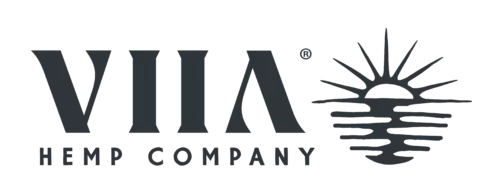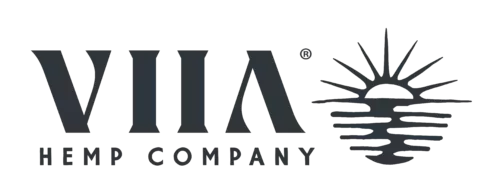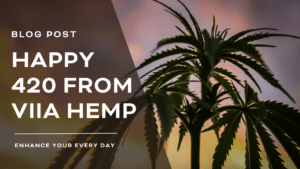How To Use CBD Tinctures & Ways To Incorporate Tinctures Into Your Daily Routines
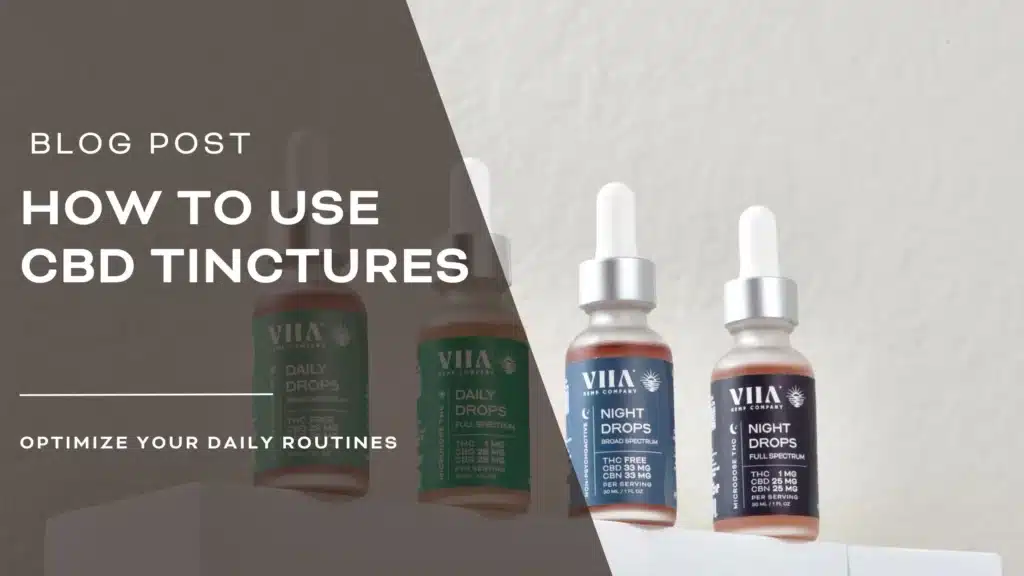
Table of Contents
The active ingredient, CBD (cannabidiol), is the most prominent cannabinoid in the hemp plant. Its non-intoxicating properties have spotlighted this compound for its potential wellness benefits.
In this article, we’ll take a closer look at the benefits of THC and CBD tinctures and guide beginners on incorporating them into daily wellness routines.
Understanding CBD Products: CBD Tinctures Vs. CBD Oils
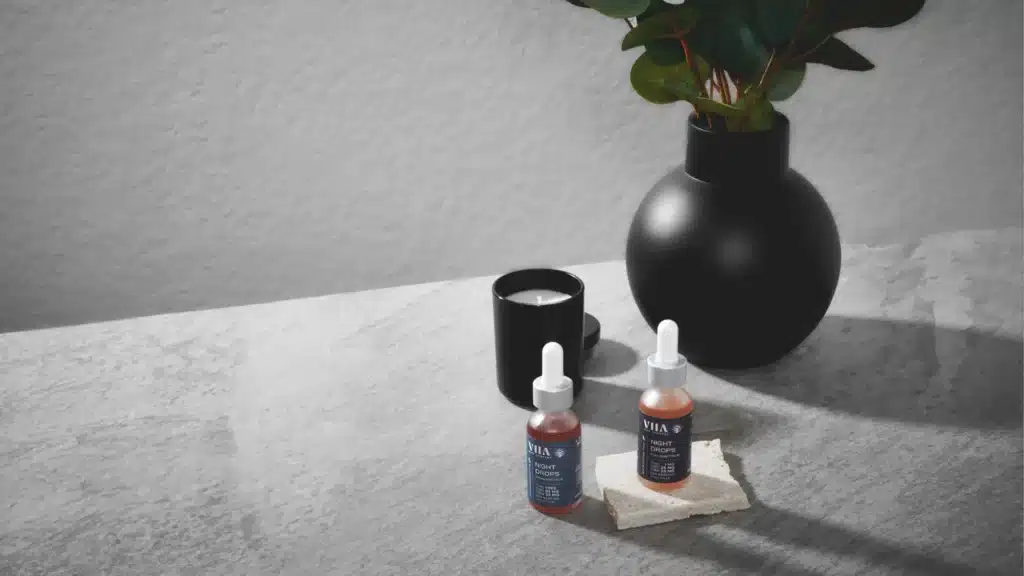
CBD oil, sometimes called CBD tinctures, is the most popular CBD product. While oil and tinctures are now often used interchangeably, there technically was a difference between oils and tinctures.
Oils are cannabinoid extract infused in a carrier oil, while tinctures are typically alcohol-based (you can think of vanilla extract in your pantry).
Most of the time, CBD oil is what you buy if you select a CBD tincture, as the cannabinoids are often mixed with a carrier oil such as MCT oil, hemp oil, or coconut oil.
Either way, CBD oil or tincture is versatile and allows for precise dosing and ease of use.
What’s The Difference Between CBD and THC Tinctures?
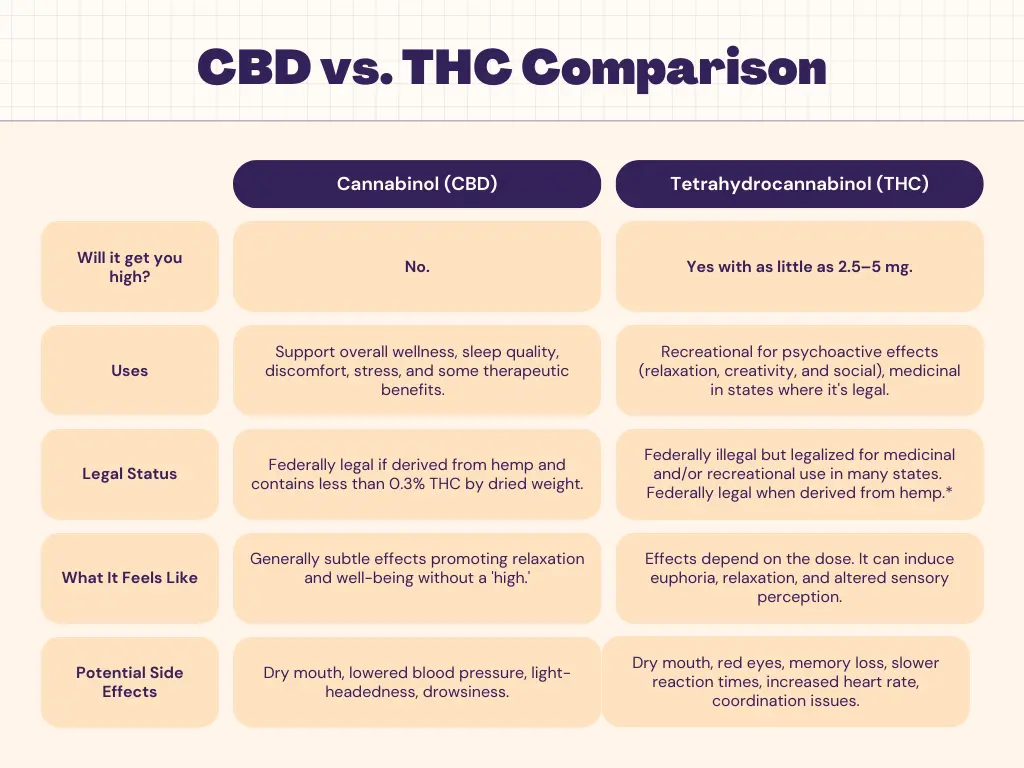
The fundamental difference between CBD and THC lies in their active ingredients and the effects they produce.
Cannabidiol and tetrahydrocannabinol are cannabinoids found in the cannabis plant and, specifically, can be harvested from Farm Bill-compliant hemp plants. However, these compounds interact with the body’s endocannabinoid system in distinct ways.
CBD Tincture Effects
Most notably, CBD oils, unlike THC, do not produce a “high.” It’s best known for its potential to provide relaxation and stress relief without causing intoxication.
People often turn to CBD products for their calming effects, which may support stress management and even sleep quality. In higher dosages, individuals use CBD for its potential to help with discomfort from aches and pain.
Full-Spectrum CBD
Full-spectrum CBD contains a range of cannabinoids, including trace amounts of THC (up to 0.3%). These trace amounts contribute to the “entourage effect” — a theory suggesting cannabinoids work better together than in isolation.
In low potencies to moderate potencies, full-spectrum CBD oil/ tincture doesn’t produce psychoactive effects in most individuals. However, its calming effects may feel more robust.
THC Tinctures
THC is the primary psychoactive component in marijuana, and in hemp plants, it can be found in up to 0.3%. Tinctures containing high enough potencies of THC can alter mood, perception, and cognition, resulting in the characteristic marijuana high.
There’s plenty of research to support that THC may have similar wellness benefits toward discomfort, keeping normal stress levels and even sleep quality, but it also produces mind-altering effects.
THC tinctures might be chosen for the recreational high, but some people prefer the effects of THC for their wellness routine.
THC tinctures can vary in potency, so it’s important to dose your THC tincture correctly to ensure the psychoactive properties don’t feel too overwhelming (we’ll get into more of that shortly).
How to Use CBD Tincture For Beginners (The Right Way)
When using CBD or THC tinctures, please start by selecting a high-quality product from a reputable source that can provide you with third-party lab tests of the products to verify their contents and potency.
Choosing the Type of Extract
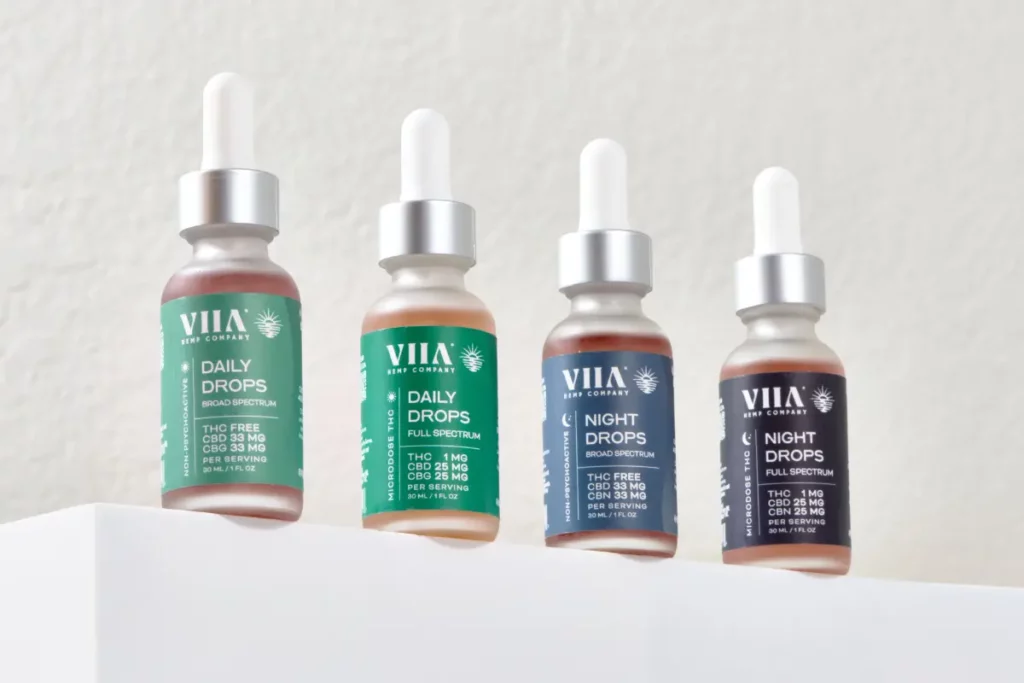
The next choice is between full-spectrum, broad-spectrum (CBD), or isolate tinctures.
Full-spectrum products contain the natural range of cannabinoids (including trace amounts of THC) from the hemp plant. Broad-spectrum CBD products have all the cannabinoids except for THC, and isolates mean the oil or tincture contains THC or CBD as the lone active ingredient.
Understanding Potency and Dosing
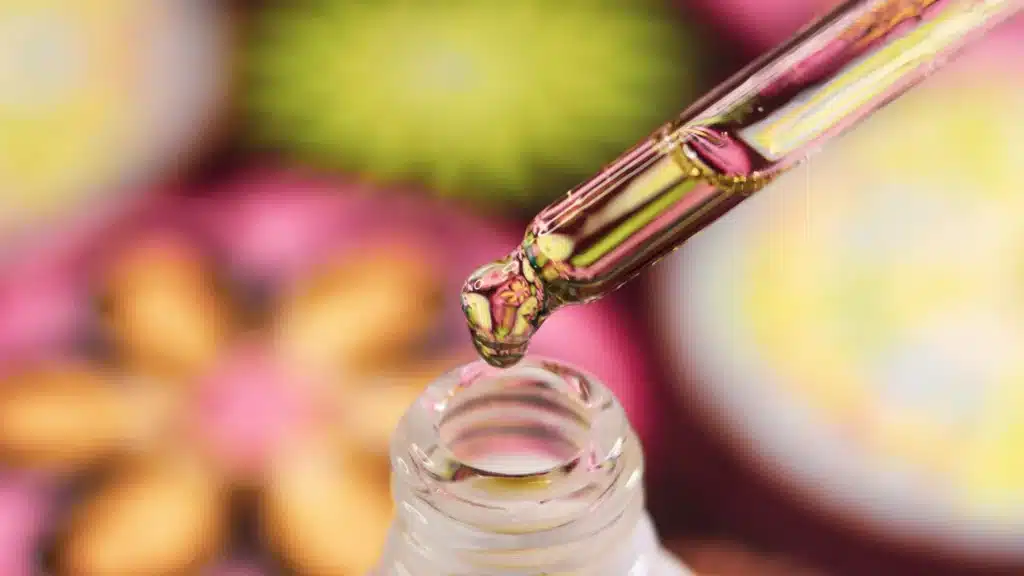
Potency is typically indicated in milligrams (mg) of CBD or THC per bottle, and most tinctures come with a dropper. If the dropper is marked, you can easily measure your dose in millimeters. If not, you’ll need to calculate the amount of CBD or THC per drop.
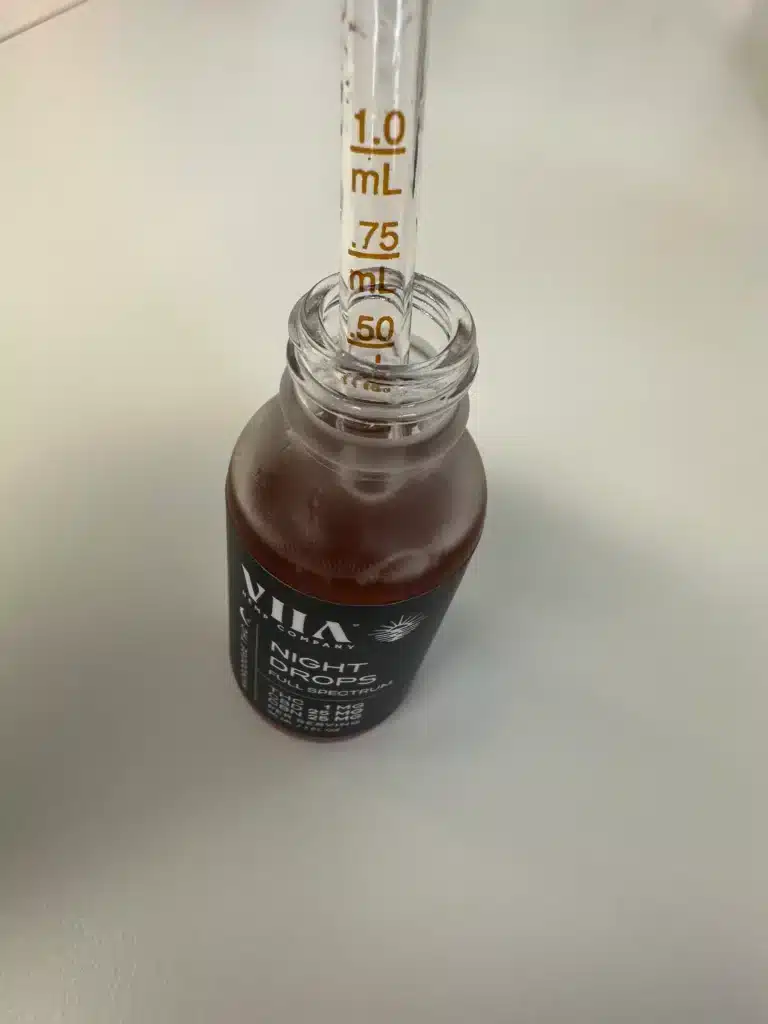
This calculation involves dividing the total CBD or THC content by the number of drops in the bottle.
Taking Your THC or CBD Drops
The most effective way to use CBD oil is sublingually (under the tongue).
Place your desired dosage with the dropper tip under your tongue and hold it there for 30 seconds before swallowing. This method allows for faster absorption of the cannabinoids into the bloodstream through the mucous membranes in the mouth.
But if you find the taste of the tincture unpleasant, you can mix it into your favorite beverage. However, this might slow the onset of effects as the tincture has to pass through your digestive tract before it enters the bloodstream.
Starting with a Low Dose
If you’re new to CBD or THC tinctures, it’s always recommended to start with the lowest dose possible.
For CBD drops, this could be anywhere from 5-10 mg. and with THC tincture, you’ll need even less than that as psychoactive doses of THC can be felt as low as 4 mg.
So start with 0.5 – 1 mg doses until you reach the designed effects. You’ll know you’ve found your ideal dosage when you feel mellow in your mind and body.
Enhancing Absorption with Food
It’s recommended to take CBD oil with a light meal to increase absorption potentially. Cannabinoids are fat-soluble compounds, which means they may be absorbed better when consumed with fatty foods like avocados, nuts, or fish.
Consistent Use
For CBD, consistent use might be necessary to reap the benefits. Adopting a daily CBD tincture lifestyle helps to maintain a steady level of CBD in your body. Unlike THC, which has more immediate and noticeable psychoactive effects, CBD works differently — and much more subtly.
Its benefits are often more cumulative than immediate in the endocannabinoid system. CBD is thought to interact with the ECS by indirectly influencing receptors and enzymes to support a healthy balance of endocannabinoids to maintain the body’s internal balance or homeostasis.
Use THC Mindfully
Regular use of THC in psychoactive dosages isn’t recommended because it risks impairment, which can get in the way of daily activities such as driving, working, or studying.
With regular use, the body can build up a tolerance to THC. This means that the same dose may produce less pronounced effects over time, and you may need to increase your THC intake to achieve the same high.
Fortunately, THC and CBD are non-toxic and well tolerated in human consumption, even in high dosages — but they can cause uncomfortable side effects when taken to the extreme, such as upset stomachs, drowsiness, headaches, and, with THC, psychological trauma.
If you find yourself reaching for higher THC dosages, tolerance breaks — where you stop taking THC for 10-14 days can help reset your endocannabinoid system.
It’s important to use THC mindfully, being aware of its effects on your body and life. This includes understanding the legal implications and potential risks associated with its use.
Morning Routine with CBD Tincture

Many people turn to CBD tinctures for stress relief and focus, and because it doesn’t interfere with your perception, it’s perfectly safe for most people to add to their morning routines.
Regular morning use of CBD may contribute to a sense of general well-being, making it easier to handle everyday stressors.
While some people find CBD relaxing, it shouldn’t induce feelings of drowsiness, especially at lower doses.
How can you add CBD tincture to your daily routine?
CBD, like morning vitamins, can be part of your daily supplement routine. Keeping CBD drops next to your vitamins can remind you to take them together.
Evening Routine with CBD Tincture
Taking CBD in the evening at higher dosages is typically recommended to support a healthy sleep cycle. Many individuals find that CBD helps them relax and unwind, making it easier to fall asleep and stay asleep throughout the night.
In the evening, it’s often more suitable to use a higher CBD dosage (25–50 mg) compared to morning use. This is because the relaxation and potential sleep-promoting effects can be more beneficial at night.
Consider taking CBD tincture about 30 minutes to an hour before bedtime for better sleep. This allows time for the CBD to be absorbed and start working. Make CBD tincture a consistent part of your nightly routine for the best results. This regularity can help your body and mind associate CBD with winding down and preparing for sleep.
Evening Routine with THC Tincture
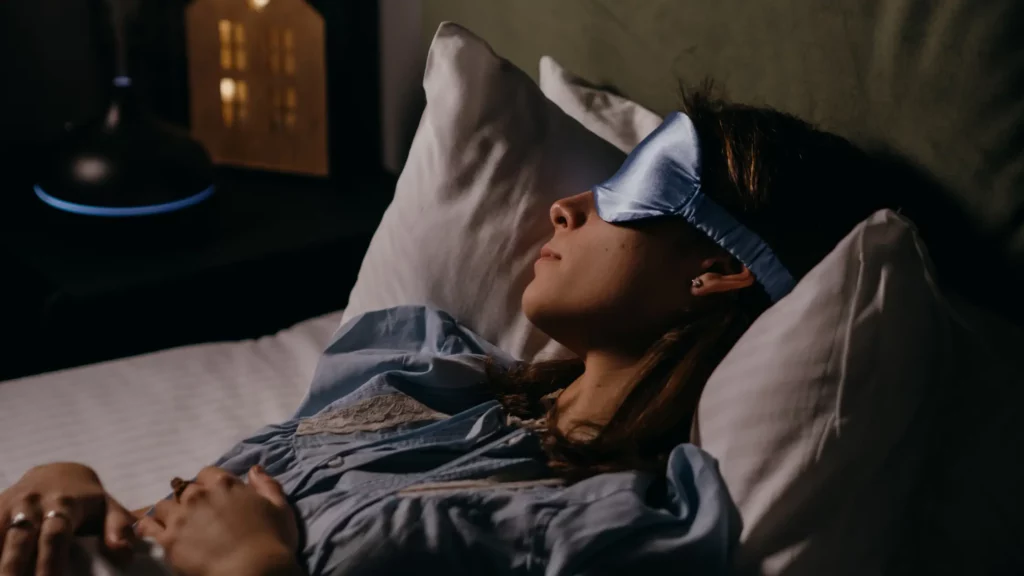
Someone might want to turn to hemp-derived THC tinctures for psychoactive effects, which can have relaxing properties that can potentially aid in achieving more restful sleep.
Take THC tincture 1-2 hours before bedtime. This allows enough time for the psychoactive effects to set in and help you relax.
Combine your tincture use with other calming evening activities, such as reading, gentle stretching, or soothing music, to enhance relaxation.
Ensure you are in a comfortable and safe environment when using THC tincture, as its psychoactive effects can alter perception and mood.
Reducing exposure to screens (like phones or TVs) before bed can complement the relaxing effects of THC tincture. And engaging in mindfulness practices can further enhance the calming effects of THC tincture, potentially leading to a better night’s sleep.
The Takeaway: How to Use THC and CBD Tinctures
We’ve explored the differences between CBD and THC, including their respective benefits for wellness and relaxation.
For morning routines, CBD tinctures can offer a non-psychoactive way to enhance focus and manage stress. In contrast, in the evening, THC tinctures can be used to aid relaxation and potentially support a healthy sleep cycle.
We’ve also discussed the importance of understanding dosages, the method of administration, and the role of consistent use, especially in the endocannabinoid system.
Remember, the key to successfully incorporating these tinctures into your daily life lies in starting with small doses, monitoring your body’s response, and adjusting as needed.
FAQs
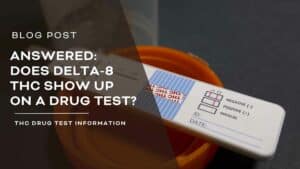
Delta 8 THC is a new addition to the cannabinoid market and many people have questions or are unaware of its potential effects. How long does delta 8 THC stay in your system? Are there any long-term effects or side effects? Will delta 8 THC cause most drug tests to fail?
